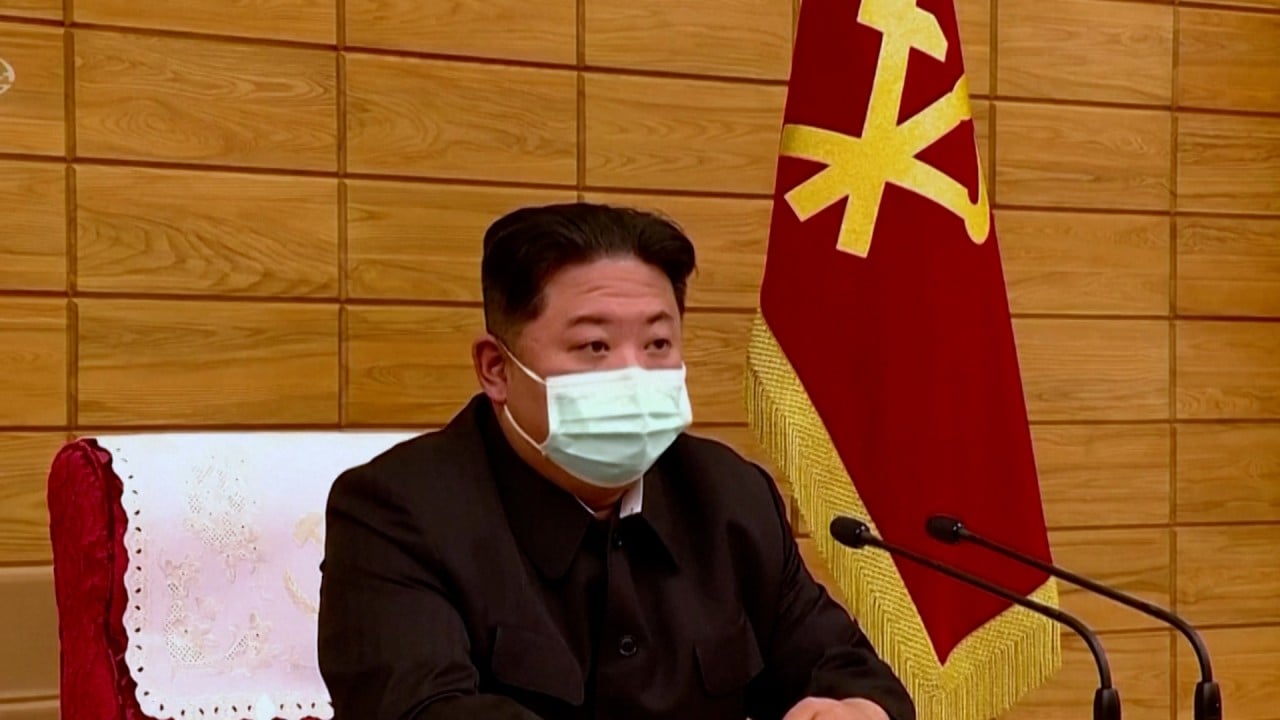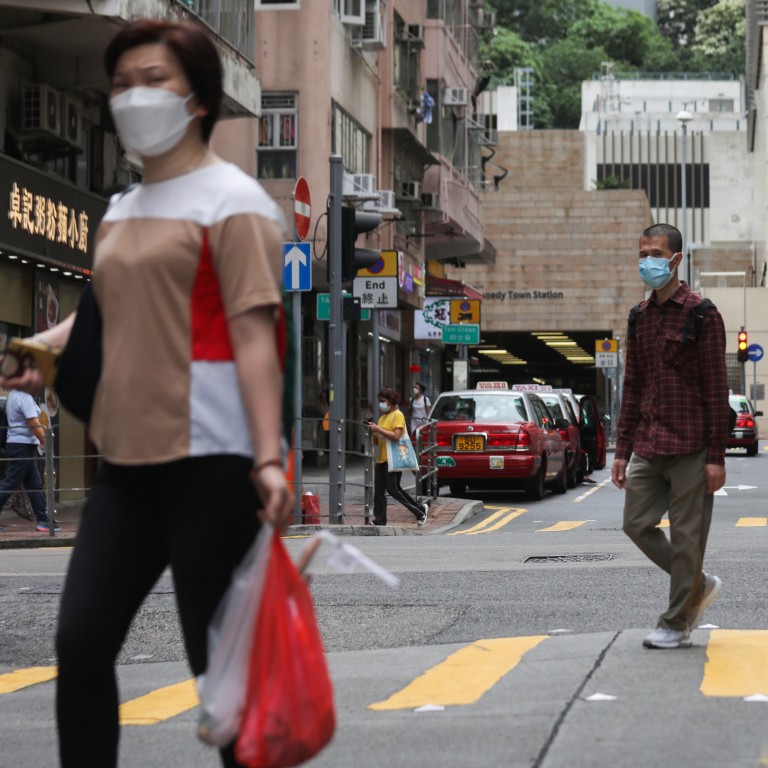
Coronavirus: sixth wave of infections unlikely to hit Hong Kong within weeks, experts say, as city confirms 234 cases
- Emergence of a sixth wave depends on whether a new variant enters the community, says veteran HKU microbiologist
- Professor Gabriel Leung on Saturday said the city was ‘on the cusp of a potential sixth wave if things tilt in the wrong direction’
The experts’ views were at odds with a projection made by leading government pandemic adviser Professor Gabriel Leung, who warned on social media at the weekend that the next wave could hit the city soon.
Health authorities on Monday confirmed 234 infections, including 42 imported ones. No deaths related to the virus were recorded. The city’s coronavirus tally stood at 1,208,740 cases, with 9,361 related fatalities.
The clashing opinions over the sixth wave came as two researchers from the medical faculty at the University of Hong Kong (HKU) called on the government to exempt residents aged under 60 from the vaccine pass scheme and to focus on boosting inoculation rates among the elderly instead.
“The emergence of the sixth wave depends on whether a new variant will enter the community,” veteran HKU microbiologist Dr Ho Pak-leung said. “If the sixth wave emerges in Hong Kong, to a certain extent, the same will happen to the rest of the world.”
Ho told a radio programme the city was still experiencing its fifth wave of infections as daily caseloads remained in the 200 to 300 range and BA.2, a subvariant of Omicron, was still the mainstream Covid-19 strain.
Hong Kong logs 259 Covid cases, while new cluster emerges in Kwun Tong
He estimated infection numbers in the fifth wave might fluctuate for a longer period of time as more indoor premises, including bars and pubs, would resume operations on Thursday, as the city further eased social-distancing rules.
“Caseloads may increase, but the public does not need to be worried about it as it is expected,” he said. “We have to focus on vaccination for everyone and observe each day if there is any emergence of cases with serious conditions. The easing of social-distancing rules should not be affected by infections with no or mild symptoms.”
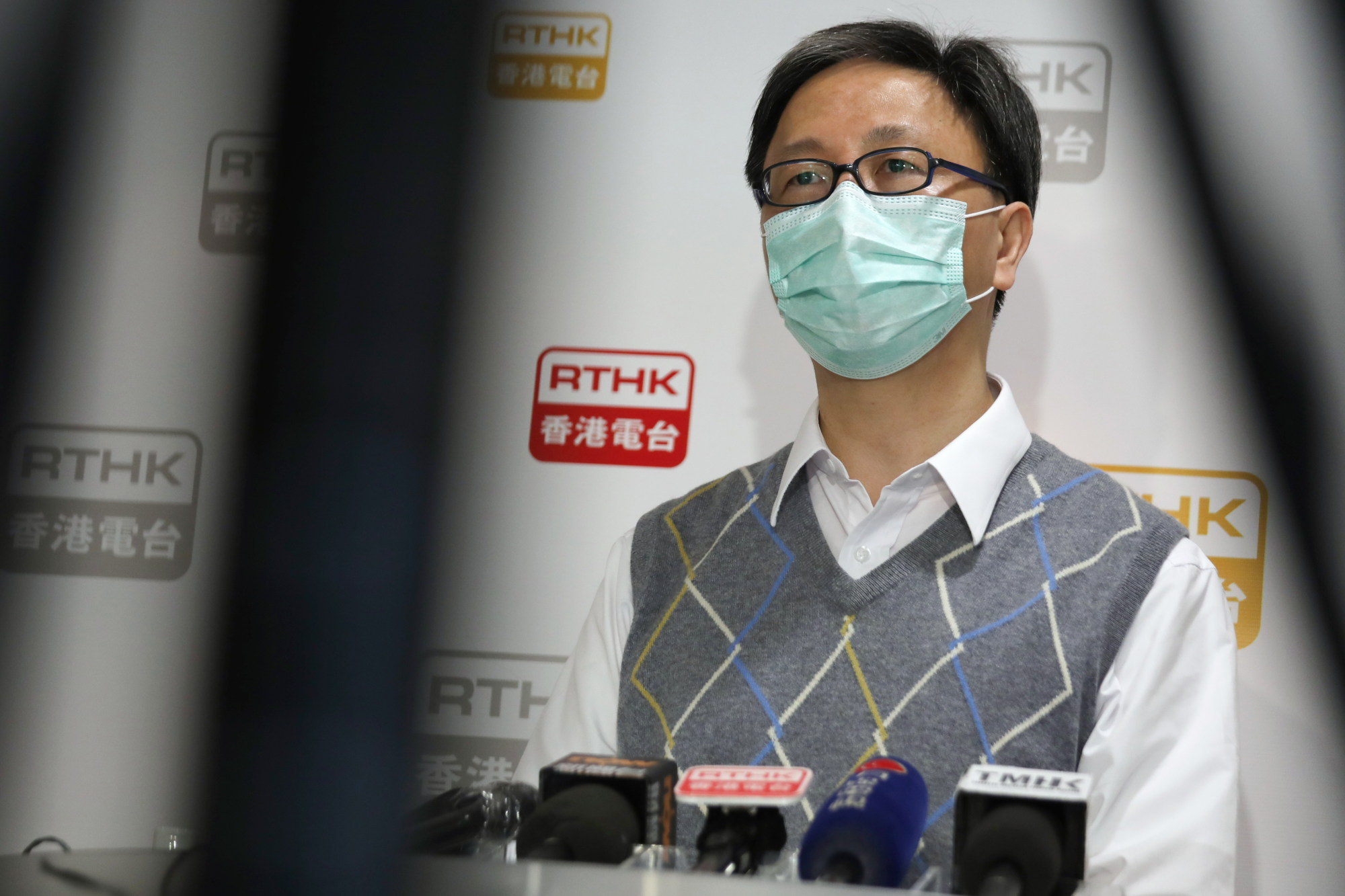
Ho was responding to comments made by Leung, dean of HKU’s faculty of medicine, late last week.
According to two attendees of a seminar for HKU doctors on Saturday, Leung showed them his data on the arrival of the next wave and told them to deal with important engagements before “things could get worse”.
Leung also tweeted later about his prediction, saying the city was “on the cusp of a potential sixth wave if things tilt in the wrong direction”, citing a virus reproduction rate of one, meaning each Covid-19 patient could infect one person on average. An epidemic will worsen if the number is greater than one.
Second boosters: what the studies tell us about the fourth Covid-19 jab
Fear of another surge in cases began to mount after HKU’s faculty of medicine warned students and staff not to visit nearby Kennedy Town for lunch last Thursday as a “large Covid-19 cluster” could appear in the area.
Sai Wan Estate was locked down on the same day for compulsory testing of residents and 22 cases were found.
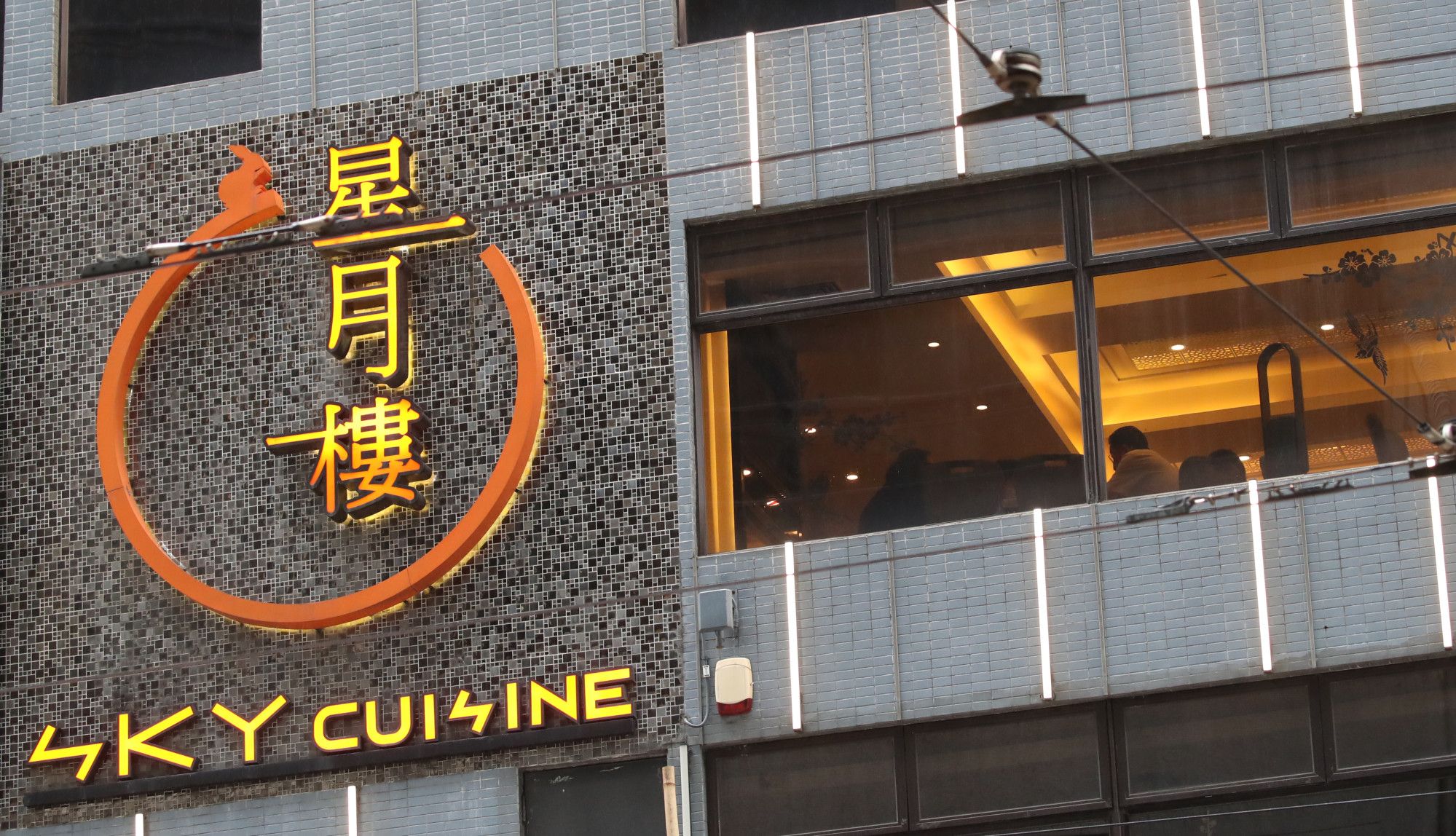
Health authorities have reported clusters at several premises, including Sky Cuisine restaurant in Sheung Wan, which had grown to 56 cases as of Monday. Three more environmental samples came back positive.
An eatery in an industrial building in Kwun Tong also reported two more infections, taking the total there to 11. All the environmental swabs taken there produced negative readings, officials said, adding they were still investigating claims that participants at a business meeting held at the restaurant did not wear masks.
Officials did not identify any new clusters on Monday.
Dr Albert Au Ka-wing, principal medical and health officer at the Centre for Health Protection (CHP), also dampened talk of a sixth wave.
“We have seen no evidence in caseload or otherwise of a rising trend or a rebound,” he said, adding that new cases averaged 275 in the last seven days, compared to 289 the week before and 357 two weeks ago.
Despite the new clusters, the number of hospitalised patients and fatalities had been dropping fast since April.
Ho said HKU’s warning was a “false alarm” as Kennedy Town did not have the highest number of infections citywide.
He argued the public should not be stressed about the clusters as the roughly 100 cases only accounted for 3 per cent of overall infections in May and outbreaks in eateries were expected with the easing of social-distancing rules.
“We know about these clusters only because the CHP selectively conducted contact-tracing work on some types of premises, which had collected the information of customers due to the vaccine pass scheme,” he said.
“I believe that other premises also had similar small-scale outbreaks in May. It was just that the public did not know about them.”
Rather than focusing on the clusters or tightening social-distancing measures, Ho said, the government should look at ways to encourage the roughly 1 million people who were eligible for a third vaccine shot to take it.
Kwok Kin-on, an assistant professor at Chinese University’s school of public health, echoed Ho’s views, adding the sixth wave might arrive during winter, when antibodies produced by the vaccine had dropped significantly and a new variant might surface.
“Our team is relatively optimistic about the situation,” he told the same radio programme. “In the coming one or two weeks, I think it is more likely that caseloads will increase slightly or remain at the same level.”
The virus reproduction rate had increased from around 0.3 to a figure ranging from 0.8 to 1, and caseloads were expected to remain in triple figures or low four digits, he said.
Kwok said the city now had an immunity barrier as millions of people had been infected with the virus, in addition to those who had received their third shot.
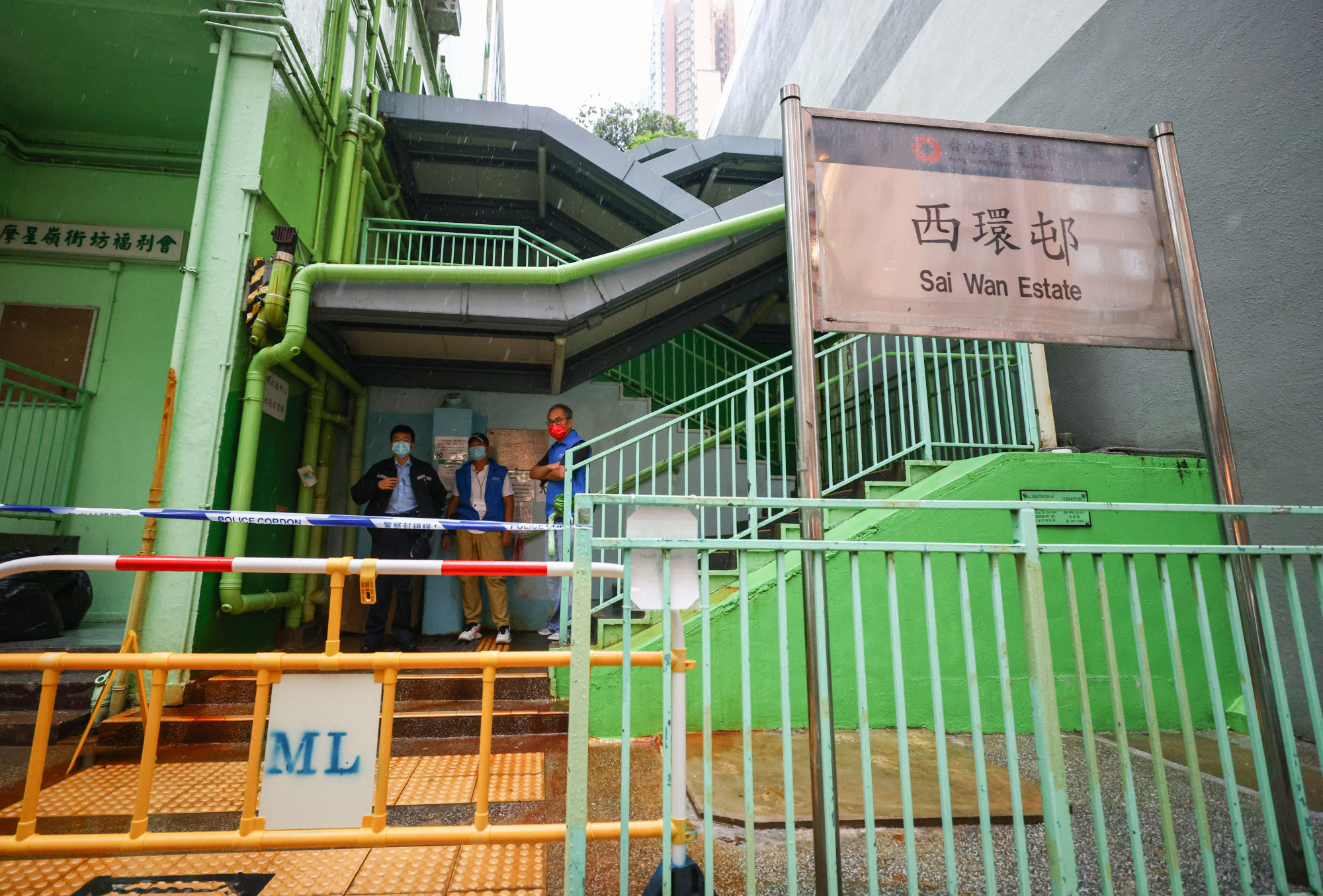
Despite the new outbreaks, he said, the situation was relatively “ideal” as the proportion of infections in clusters was small in comparison with the more than 1,000 eateries that had resumed business at night. Kwok said authorities might consider adjusting social-distancing measures in certain premises when the proportion reached a high level.
Separately, Professor Benjamin Cowling, head of the epidemiology and biostatistics division at HKU, and honorary assistant professor of pharmacology and pharmacy Chan Tak-kwong suggested in a commentary on Monday that adults aged under 60 should be allowed to enter premises without the need to use the city’s vaccine pass scheme.
They said most younger adults had been double-vaccinated and the possibility of serious illness and death among them would be small in future waves, as they opposed the use of “coercive policies” to boost the vaccination rate among this group of residents.
But Ho disagreed, saying it was not the right time to review the scheme as it was still a “crucial tool” to push up the vaccination rate and social-distancing rules were still being relaxed.
“If the government wants to introduce a flexible scheme, it may need to do a lot of convincing to explain why some people are treated differently,” he said.
Kwok also said the scheme should remain in place as it would be required for reopening the border with mainland China and many adults aged under 60 worked in high-risk groups.
Hong Kong scrambles to trace diners as new Covid cluster emerges at restaurant
CHP’s Au said while it was true that the elderly were more likely to develop complications from Covid-19, younger residents should still take a third jab to protect themselves.
“As life returns to normal, we have to proceed on the basis of the vaccine pass. Some activities and gatherings could [be riskier because masks will be taken off], so residents can still protect themselves by getting a booster shot,” he said.
“Vaccination is effective for all age groups … and the younger population can also end up in hospital from Covid-19.”
Meanwhile, ParknShop voluntarily stopped selling a brand of frozen shrimp from Indonesia after a sample tested positive for Covid-19 in Macau, the Centre for Food Safety said. The product concerned was “Wild Caught Frozen White Shrimp” sold under the brand “Java Sea” with best-before dates February 1, 2024; March 1, 2024 and April 1, 2024. The centre’s spokesman urged the public not to consume the affected batches.
Additional reporting by Danny Mok


